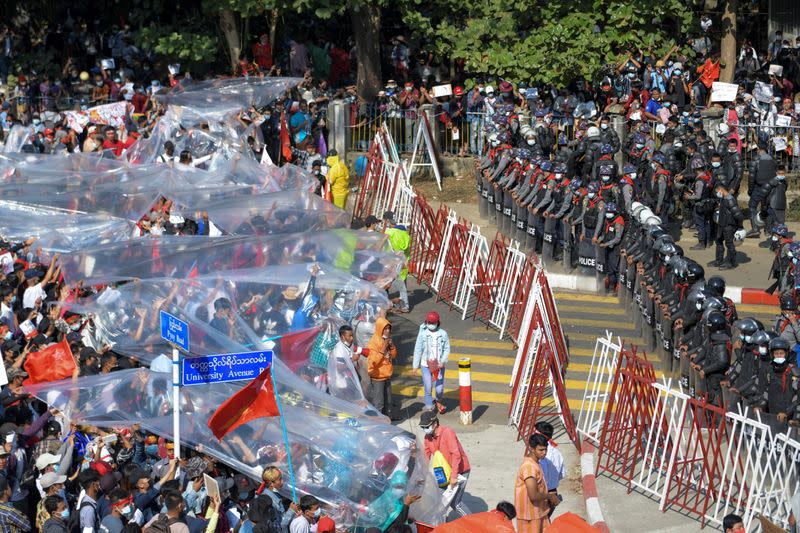U.N. rights envoy warns Myanmar against excessive use of force

GENEVA (Reuters) - Myanmar security forces and police have a duty under international law to refrain from using excessive force against peaceful demonstrators protesting against the military coup, a U.N. human rights investigator said on Wednesday.
Thomas Andrews, U.N. special rapporteur on human rights in Myanmar, voiced concern at reports of security forces using lethal force. All security forces, "regardless of rank", were liable to prosecution for any violations, he said.
"I am alarmed at the increasing levels of force against peaceful protesters," his statement said.
Protesters returned to the streets of Myanmar on Wednesday despite the shooting of a young woman the previous day, with some emphasising their peaceful opposition to the coup by dressing up in formal wear or sitting in inflatable pools.
Andrews said "hundreds of arbitrary detentions" had been recorded in Myanmar since the Feb. 1 coup, and that some people were being detained incommunicado.
"Myanmar military personnel and police need to know that ‘following orders’ is no defence for committing atrocities and any such defence will fail, regardless of their place in the chain of command," he said.
The main U.N. human rights body is set to consider a resolution on Friday, drafted by Britain and the European Union, that would condemn the military coup in Myanmar and demand urgent access to the country, a text seen by Reuters shows. [L8N2KG3E1]
It says that Andrews should be granted urgent and "unrestricted" access to the country.
His predecessor, Yanghee Lee, was banned from Myanmar after a statement issued at the end of her visit in July 2017 that decried restrictions on her access to ethnic minority areas and "unacceptable" intimidation and questioning of people she met.
(Reporting by Stephanie Nebehay; Editing by Jon Boyle, Philippa Fletcher)


